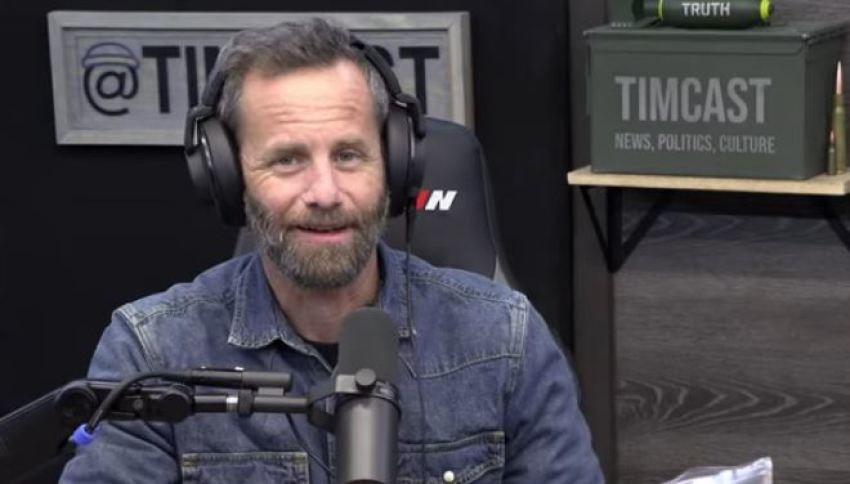Kirk Cameron: Biblical command to 'turn the other cheek' doesn't mean Christians should 'tolerate tyranny'
Intolerance for evil is a 'very essential Christian virtue', actor says

Kirk Cameron has some thoughts on what it really means to "turn the other cheek."
The actor said intolerance, at least when it comes to evil and tyranny, is, in fact, a “very essential Christian virtue,” one which, he added, America’s founding fathers espoused.
In a Feb. 21 appearance on the “Timcast IRL” podcast with Tim Pool, Cameron touched upon a number of topics, including his fight against “religious viewpoint discrimination” in public libraries and Noah Webster’s Christian influence on education.
But it was in response to Pool’s apparent reference to a Christian Post story earlier this month about his comments on conservative Christians playing a role in America's decline by being “tolerant and accepting” that led to a lively conversation between Pool and Cameron.
Crediting a 2023 speech by entrepreneur Patrick Bet David for his comments, Pool summarized David's speech as essentially saying, “Christians in this country are good people who keep saying OK to these people, being tolerant, allowing them to live the way they want to live.
"But what happens is they push more into the institutions, they introduce dangerous, bad ideas, they start targeting kids, and now we're here where we are today."
Cameron responded by saying “turn the other cheek” and “love your neighbor” were never intended to allow for the tolerance of evil.
“… I see so many who are just tolerating evil and that’s not loving your neighbor,” he said. “At the end of the day, the two great Commandments of Christianity are to love God with all of your heart, mind, soul and strength, and the second is like it, to love your neighbor as yourself.
“If you 'tolerate' the kinds of things that bring misery to your neighbors and ultimately strip them of their liberties, you're not loving them.”
As an example, he cited Just War Theory, followed by most Christians for over a thousand years, which states that if you believe your enemy is preparing to attack, you are justified in defending your own people by attacking first.
Cameron said the Constitution is another means of mitigating against overreach by tyrants.
“We don't tolerate tyranny, either from the outside or the inside, and that is a very essential Christian virtue, is to not tolerate that type of thing,” he added.
He contrasted the act of Christian charity and forgiveness with a biblical notion of justice.
“If you're gonna cuss me out and you're gonna steal my coat, I might love you anyway and give you my shirt too,” he said. “And in doing that, people go — their conscience convicts them and they come back around and go, 'Why do you do that? Why do you live that way?'
“But you come after my kids, or you start stripping away my liberties, or you make my neighbors live in poverty and misery so that you can go live on Epstein island? No, I think we shouldn't tolerate that.”
As the conversation veered into the subject of various tenets of Christianity, Pool offered up a frank assessment of his own religious views.
After sharing about an exchange he had with some Seventh-day Adventist evangelists canvassing his neighborhood, Pool said, “I’m not a Christian, I believe in God, I grew up Catholic, don’t really follow organized religion … but I love the history of this country.
“I love understanding the Bill of Rights. I love understanding why the Founding Fathers decided to enshrine the things they did and why, and ... this is a historical fact, it was concepts of biblical teaching.”
He compared the account in Genesis 18 of Abraham bargaining with God over the fate of the righteous in Sodom with Blackstone’s ratio, a legal theory that states that it is preferable for 10 guilty persons to escape rather than to have one innocent person suffer.
Pool said, like Blackstone’s ratio, the morality of America’s Founders was “rooted in Christian teaching.”
“The Founding Fathers just didn’t read the Bible and say, ‘Let’s do what the Bible says,’” he explained. “They actually thought about what it would mean to create a government that opposed those teachings.”
Ian M. Giatti is a reporter for The Christian Post and the author of BACKWARDS DAD: a children's book for grownups. He can be reached at: ian.giatti@christianpost.com.



























